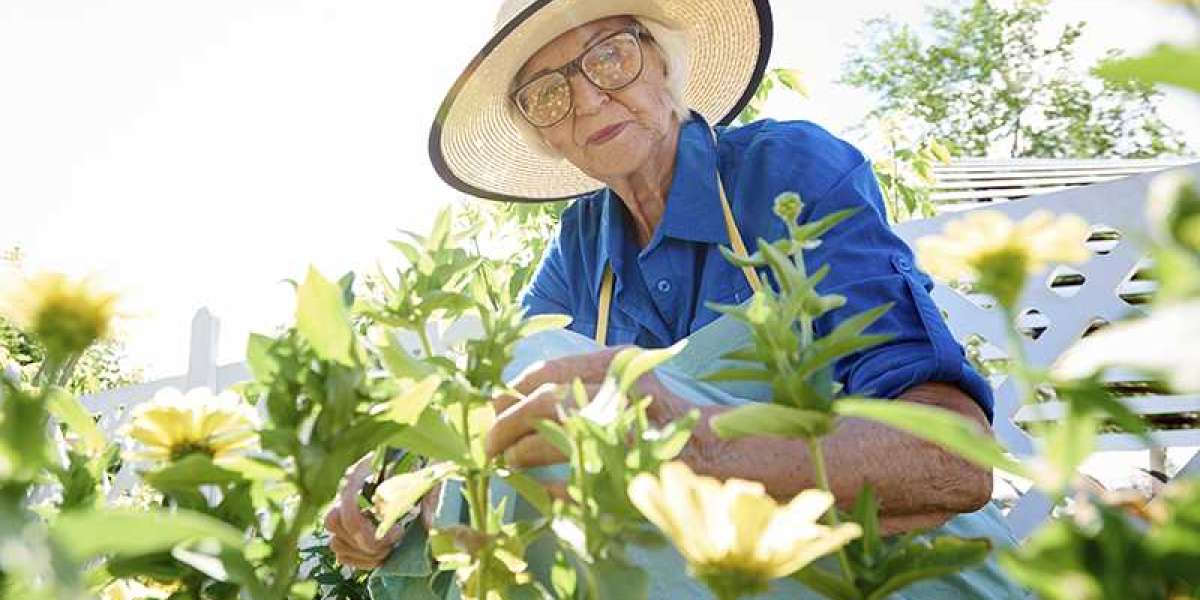The practice of gardening, particularly edible gardening, provides a variety of health and psychological advantages for elderly individuals. Modifications to garden beds, equipment, and tools may all be made in order to produce a garden that is visually appealing, easily accessible, and productive.
Some medical issues and physical impairments may make it difficult or impossible for elderly adults to engage in gardening activities. However, with a little forethought and a few tweaks, you can create a setting that is secure, accessible, and delightful.
Gardening has several advantages for senior citizens.
Gardening is useful to elderly adults for a variety of reasons, including:
is a pleasurable sort of physical activity
increases levels of physical activity and aids in mobility and flexibility encourages the use of all motor skills improves endurance and strength aids in the prevention of diseases such as osteoporosis reduces stress levels and promotes relaxation can provide nutritious, home-grown produce improves wellbeing as a result of social interaction can provide nutritious, home-grown produce
Gardening with health factors in mind
Some physical, mental, and age-related issues must be taken into consideration when older people are working in the garden, but they should not hinder individuals from enjoying the garden as much as they would otherwise. These are some examples:
Skin — Older adults have more delicate, thinner skin, which makes them more prone to bumps, bruises and sunburn.
vision - changes in the structure of the eye lens, loss of peripheral vision, and overall decreased eyesight can make it difficult to carry out daily tasks.
Mental abilities - Dementia and other comparable disorders can have an impact on one's mental health, thinking, and memory capacities, among other things.
Concerns about body temperature in older adults who participate in outdoor physical exercise include their vulnerability to temperature variations as well as their potential to dehydrate or suffer from heat exhaustion.
Falls are more likely in the skeletal system because balance is generally not as excellent. In some cases, osteoporosis and arthritis can make it difficult to move and be flexible.
Adaptations to equipment and the garden to make it more accessible to seniors
In order to help older adults lessen the physical stress involved with gardening, garden settings, tools, and equipment can be adjusted or customized to meet their specific needs. Among the suggestions are:
Use vertical planting to make garden beds accessible for planting and harvesting — wall and trellis spaces may be utilized for this purpose.
Increasing the height of beds to allow those with physical limitations to avoid bending and stooping
Making use of retractable hanging baskets, wheelbarrows, and containers on castors to create moveable and raised garden beds is a good example of this.
discovering and purchasing adaptable tools and equipment – these may be obtained from several hardware stores
modifying current instruments with foam, tape, and plastic tubing in order to improve their grip
making use of lightweight instruments that are easy to maneuver around
offering shaded locations for employees to work in during the hot months
Having sturdy seats and tables to utilize for gardening in a pleasant manner is a plus.
ensure that there is a water source nearby or consider adding a drip feeder system to make watering more convenient
Security in the garden for adults over 60 years of age
The following are some safety precautions that elderly adults (and their caregivers) should take:
Any wounds, bruises, or insect bites should be treated as soon as possible.
When working with power tools, exercise caution.
If you have memory loss, make sure your gates and fences are secure.
Inspect walks and walkways to ensure that they are level and non-slip.
Warm up before you start gardening and take numerous pauses while you're working.
Working in the garden early in the morning or late in the afternoon will help you avoid overexposure to the sun. Wear a hat and reapply sunscreen on a regular basis.
Drink plenty of water or juice and stay away from alcoholic beverages.
Wearing protective shoes, lightweight, comfortable clothing that covers exposed skin, a cap, and gardening gloves are all recommended precautions to take.
Garden equipment should be stored carefully.
Gardening activities for senior adults are becoming increasingly popular.
There are a variety of activities involved with gardening that older persons may find enjoyable. These are some examples:
digging, planting, watering, harvesting, and arranging flowers and food
sensory enjoyment - smelling, touching, gazing, hearing, remembering crafts and hobbies related with flora and food preparation sensory delight



